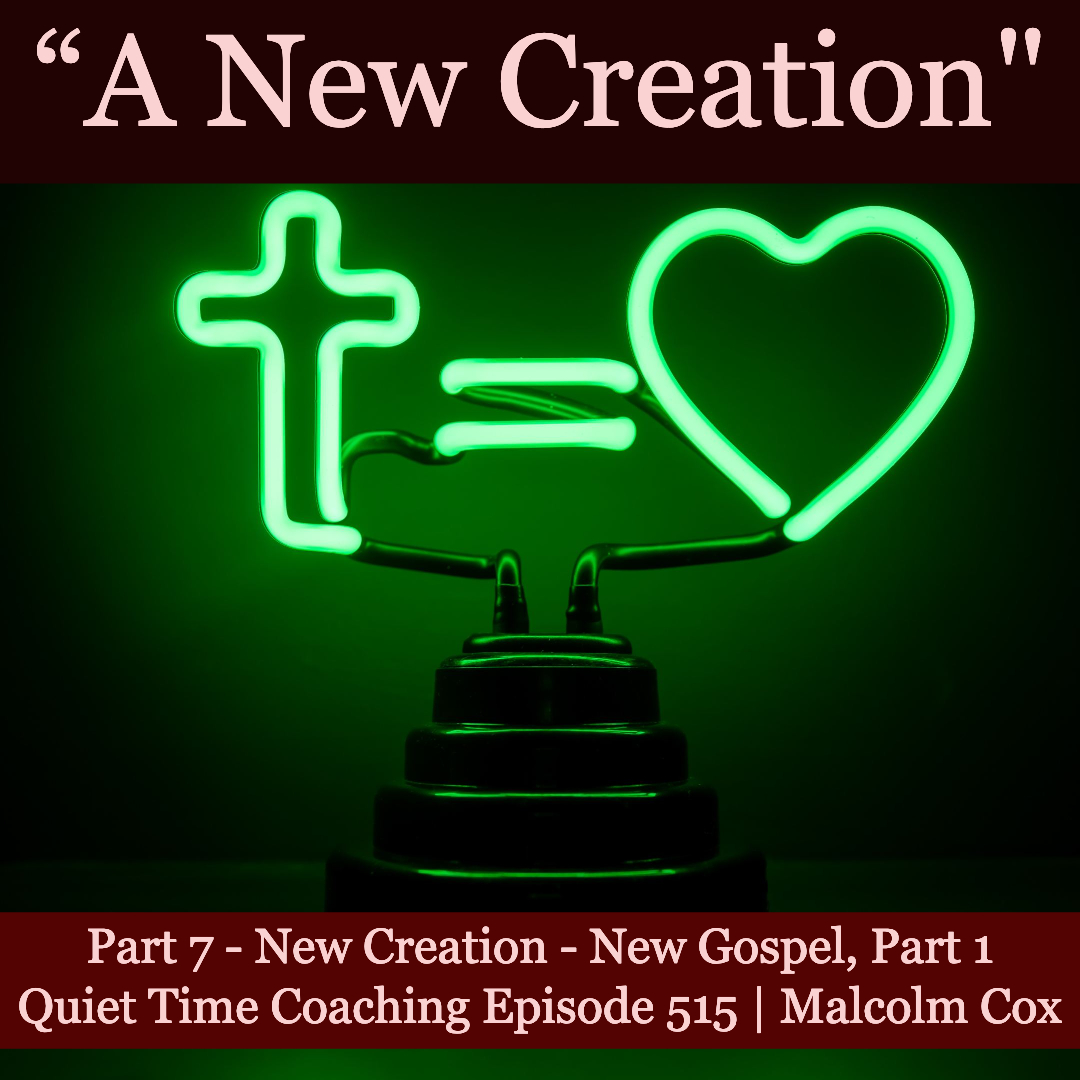I’m very happy to bring you a guest blog post by my friend, Rolan Monje. He has the role of a Teacher in our sister congregation in Manila.
Take your time to read it carefully and use it in the way it’s intended – not just for interest, but to stimulate our prayer lives.
Let me know what stands out from this article, and leave a comment as to how it helped you.
God bless, Malcolm
Prayers in the Bible
A few months ago, I felt that God was calling me to a deeper prayer life. I decided to meditate on the prayers of the prophets. Also, I found it helpful to study out the prayers of Christ. As I dug deeper, I ended up surveying the whole Bible on the subject of prayer. One thing is certain: the Bible has more than enough references to prayer-commands, records, examples, and allusions to show that God desires to have a prayerful people. It was both a sobering and inspiring study for me.
In the following sections, you will find listed the various prayers mentioned in the different parts of the Bible. I hope that this summary will encourage you to also study out prayer in the Bible. This will surely enrich your walk with God. Here are some helpful study questions when you look at prayers in the Bible:
1. What caused the person to pray?
2. What was the condition of the person’s heart when he/she prayed?
3. Why was the prayer answered (or not answered)?
4. What can I learn here about God’s character?
5. Is there anything I can change in my prayer life based on this example?
A. Prayers in the Pentateuch
The books from Genesis to Deuteronomy mention prayers of many different kinds. Although collectively the first five books comprise what is called “The Law”, it is not just a cold, legal document. Principles and patterns of prayer (non-legal in nature) stand out. Most of the prayers are requests and pleas, but there are also praises and complaints:
1. Cain’s prayer is the first one mentioned in Scripture. In Ge 4:13-15, he cried out to God as he bore the consequence of his sin.
2. Abraham has several times of prayer recorded in his storyline. He prayed for a son in Ge 15:1-9), and for different people as well: for Ishmael in Ge 17:20 and for Abimelech in Ge 20:17. Another time he prayed for the city of Sodom (Ge 18:23-33).
3. Hagar is recorded as praying for deliverance (Ge 16:7-13).
4. Lot bargained with God regarding his escape plan in Ge 19:20.
5. Abraham’s servant (possibly Eliezer) sought specific guidance from God in Ge 24:12-52. This is a great example of specific, pointed prayer.
6. Rebekah cried out to God concerning her pains in pregnancy (Ge 25:22-23).
7. Jacob, finally facing up to his faults, pleaded for deliverance from Esau (Ge 32:9-32; 33:1-17).
8. Moses had a whole lot of prayers lifted up to God. In Exodus, Moses asked for help at the Red Sea (Ex 14:15-16), at the waters of Marah (Ex 15:25), at Horeb (Ex 17:4-6), and in the battle versus the Amalekites (Ex 17:8-14). In Numbers 11, he went to God concerning the grumbling of the Israelites for flesh (Nu 11:11-35) and in the chapter following in behalf of Miriam’s leprosy (Nu 12:13-15).
Questions for reflection:
1. How does our character affect our prayer life?
2. How did God train Israel to be prayerful? Note: Aside from these examples, the Israelites are also mentioned as having “cried unto the Lord” (Nu 20:16; De 26:7). This means that they had prayed although the actual words of their prayer were never recorded. In each case, Israel is presented as helpless without God, and it is He who is ultimately the Saviour of the nation. Without divine intervention, sure ruin would have come to Israel.
Suggested topics for study: How Moses spoke with God, Jacob’s “habit” of altar-building; Abraham’s call and prayer life, How God trained Israel to pray
B. Prayers in the History Books
More detailed prayers are given in the history books. Interwoven within the annals of ancient Israel are the lucid narratives of men who sought a deep relationship God. More pronouncedly than the Pentateuch, the History books portray the connection between a man’s leadership and his prayer life. Also, with David as a chief example, the History books give greater detail into how God’s people made various requests to God. It is clear that those who rely on God receive favour. Some of their prayers are listed below:
1. Joshua prayed a unique, radical prayer for the sun to stand still (Jos 10:12-14). This chapter displays God’s power over creation in behalf of man.
2. Gideon, before his debut as Israel’s leader, asked for a sign of dew (Jdg 6:36-40). The chapter actually records more appeals for proof of God’s approval. Gideon’s confidence in God’s promises needed boosting.
3. Manoah asked for guidance about his child, saying “teach us how to bring up the boy”. This prayer about raising Samson was heard by God (Jdg 13:8-9).
4. Samson begged for strength for one last time, gaining retribution for his demise (Jdg 16:28-30).
5. Hannah asked for a child after many years of being barren (1Sa 1:10-17, 19-20).
6. David has a well-recorded prayer life. His prayers include inquiring whether Keilah would be delivered into his hands (1Sa 23:10-12), inquiring about Ziklag (1Sa 30:8), asking whether he should enter Judah after Saul’s death (2Sa 2:1), and asking whether he should go to war against the Philistines (2Sa 5:19-25). Some of David’s other prayers are found in the Psalms (e.g. Ps 118:5; 138:3).
7. Solomon prayed for wisdom at the start of his reign (1Ki 3:1-13). He also prayed at the dedication of the temple (1Ki 8:23-53; 2Ch 6:14-42).
8. Hezekiah prayed to God for a chance to serve a longer time (2Ki 20:2+). Hezekiah reminded God of his faithfulness, both in his personal conduct and in his righteous deeds, and of his wholehearted devotion to God. Earlier he had prayed for deliverance from Sennacherib (2Ki 19:14-20; 2Ch 32:20-23).
9. Elijah’s life was built on prayer. Only by asking God was the widow’s son raised (1Ki 17:22). At the famous challenge of Mt. Carmel, God answered his plea for fire on his sacrifice(1Ki 18:36-38). Elijah’s prayers also affected the rain (1Ki 17:1; 18:1, 42-45; Jas 5:17).
10. Elisha is recorded as praying to God to open the eyes of his servant. He later leads the Syrian army to submission (2Ki 6:1, 17-20).
11. Jabez implored for prosperity in 1Ch 4:10.
12. Abijah asked for victory over Jeroboam (2Ch 13:14-18).
13. Asa asked for victory over Zerah (2Ch 14:11-15).
14. Jehoshaphat asked for victory over the Canaanites (2Ch 18:31; 20:6-7)
15. Jehoahaz asked for victory over Hazael (2Ki 13:4)
16. Manasseh asked for deliverance from the king of Babylon (2Ch 33:13, 19)
17. Ezra prayed to God upon hearing of intermarriage among the people (Ezr 9:5-6; 10:1)
18. Nehemiah opened his account with prayer (Ne 1:4-11). The book has several other prayers and references to prayer (e.g. 2:4).
Aside from the individuals mentioned above, several groups are mentioned as lifting up prayers to God. The Reubenites pleaded for deliverance from the Hagrites (1Ch 5:20). The priests also offered prayer in behalf of the people in 2 Chr 30:27. Although not as specific about prayer, the people of Judah are mentioned to have sought God “with their whole desire” (2Ch 15:15). Upon returning from the Captivity, the Jews also offered up prayers to God while fasting (Ezr 8:21, 23).
Suggested topics for study: Joshua’s Radical Prayer, Nehemiah’s prayer life, The Heart of David in prayer, Ezra’s prayer in Ezra 10, Prayer and Faithfulness
C. Prayers in the Prophets & Psalms
The prophets acted as God’s spokesmen for many centuries. For sure it was vital for these men to have a dynamic walk with the Lord. The instances of prayer mentioned in the prophets–books from Isaiah to Malachi–are few but significant. Of course, it would be impossible for these men to remain in their vocation without powerful prayer. I am sure that many prayers of the prophets were left unrecorded. In Isaiah 6 for example, the prophet has a discourse with God in a vision. Elsewhere in the book he does not actually pray to God, but prayer his is mentioned in 2 Ki 20:11. Here are some of the instances of prayer mentioned in the prophets:
1. Jeremiah prayed to God, seeking reassurance for his “risky” purchase of land (Jer 32:16-25). This section records an intense conversation between God and the prophet.
2. Ezekiel bargained for another way to bake bread (Eze 4:12-15). This had a spiritual significance in his life as a prophet.
3. Daniel was known for his consistent prayer life (Da 6:10-11). He prayed for divine revelation and interpretation of Nebuchadnezzar’s dream (Da 2:19-23) and also interceded for the people (Da 9:20-23).
4. Jonah found himself praying from inside a big fish (Jnh 2:1+).
5. Habakkuk questioned God as he complained and lamented (Hab 1:2+).
Questions for thought:
1. What was the role of prayer in a prophet’s life?
2. What could have been some of the prophets’ difficulties in prayer?
3. What can I learn from the prayers of the prophets?
All the Psalms could be read as “lifting up hearts before God.” In this way, the Psalms present a valuable treasure trove of prayer. The Psalms represent the whole range of human emotion and teach us how to express ourselves to God at different times. That is why the Psalms are so “relatable” to us. By reading through the Psalms, meditating on them, and reciting them aloud, we learn to communicate with God the way his ancient peoples did.
D. Prayers of the New Testament
The New Testament chronicles a lesser number of prayers than the Old. Because of the letters however, we are given richer insight into how the apostles prayed: their content and manner. Here are some prayers recorded in the NT, with the prayers of Christ reserved for later:
1. Zechariah prayed for a son (Lk 1:13).
2. Anna served God with fasting and prayer (Lk 2:37).
3. Paul asked to be delivered from death (2Co 1:9-11).
4. Stephen prayed as he neared death (Ac 7:59-60).
5. Paul and Silas were praying in prison, being heard by the other inmates (Ac 16:25).
6. Peter prayed for the dead Tabitha (Ac 9:40). Another time he is went up on the roof to pray (Ac 10:9).
7. Cornelius’ piety was shown by his prayers (Ac 10:30).
In Acts, the disciples are seen praying for Peter’s protection (Ac 12:5-17). This shows that there was an atmosphere of prayer in the church (check out the role of prayer in Acts 1, 6, and 13). After the gospels and Acts, the Epistles hold a vast number of prayers penned by the authors. These give us insight into how the Apostles prayed. See for example Paul’s prayers: for Ephesians (Eph 1:15-19; 3:14-19), for Philippians (Php 1:3-5, 9), for Colossians (Col 1:3, 9), for Thessalonians (1Th 1:2; 3:10, 12-13; 5:23; 2Th 1:11-12; 2:16-17; 3:5, 16), for Onesiphorus (2Ti 1:16, 18), for Philemon (Phm 4).
The prayers of Christ deserve special attention. Not only are they frequent and varied, but they uniquely open a window into the very heart of God. The prayers of Jesus are moving and gripping. They teach us how to approach God humbly yet forcefully.
Here are some passages describing the prayer life of our Lord:
1. Jesus began his day early with prayer (Mk 1:35). This reflects discipline and dependence.
2. Jesus sought to have private times with God, especially in the mountains (Mt 14:23; Mk 1:35; 6:46; Lk 5:16; 6:12; 9:18, 28-29).
3. Jesus’ custom was giving thanksgiving before eating (Mt 14:19; 15:36; 26:26-27; Mk 6:41; 8:6; 1Co 11:24).
4. Jesus depended on God in times of distress (Jn 12:27; Heb 5:7). He showed this at Gethsemane (Mt 26:36-44; Mk 14:32-35; Lk 22:41-44; Heb 5:7) and on the cross (Mt 27:46; Lk 23:34, 46).
5. Jesus blessed children (Mt 19:13, 15; Mk 10:16).
6. Jesus prayed for his disciples, just like he told Peter (Lk 22:31-32). He also prayed for all believers (Jn 17:1-26). This reflects his big heart for people.
7. Jesus had specific requests to God. He presented his desires at the grave of Lazarus (Jn 11:41-42). He also prayed for the Comforter, the Holy Spirit (Jn 14:16).
A study of Jesus’ prayer life shows how mortal man can have a dynamic relationship with God. Jesus’ prayers, whether on a mountain (Mt 14:23; Mk 6:46; Lk 6:12; 9:28) or in the wilderness (Lk 5:16), give us great insight into true personal worship with God. His example of prayer was one-of-a kind. It is evident from the gospels that Jesus believed in prayer, told men to pray, and prayed a lot himself. Jesus’ teachings matched his own superlative example; I would say he was the most “prayed up” man ever. His prayers were frequent, sincere and personal. Jesus understood that the Father sought worshippers and that our worship satisfies His loving heart. That is why his prayers pleased God; they met God’s desire. This was the new spiritual worship that Jesus described to the Samaritan woman. Because God is Spirit, we must worship in spirit. As God is, so His worshippers. Anyone who prays more like Christ is on a good spiritual track.
Closing Thoughts
The Bible has so much about prayer that a whole lifetime would not be enough to exhaust the learning and the experience. Praise God that he has given us every day of our lives to enjoy our relationship with him. I pray that this summary of prayers in the Bible will inspire you to grow in your own prayer life. A close walk with God is a priceless gift.
A growing prayer life is worth the time and effort. Even the chance to approach God is something we don’t deserve. To have a “good talk” with the Lord is better than anything in the world. There is nothing as fulfilling, as enjoyable, or as powerful.
Rolan D. Monje
Please leave a comment here so that we can all learn from one another. We learn best, when we learn in community.
Would you like some coaching in the spiritual disciplines? You can find me by clicking the button below.
I hope you have a wonderful week of fulfilling quiet times.
God bless, Malcolm





